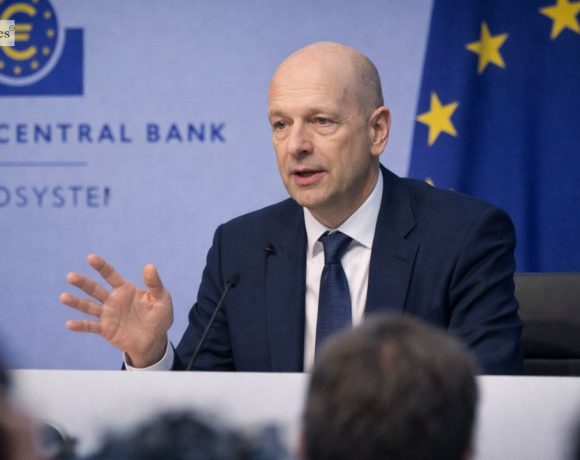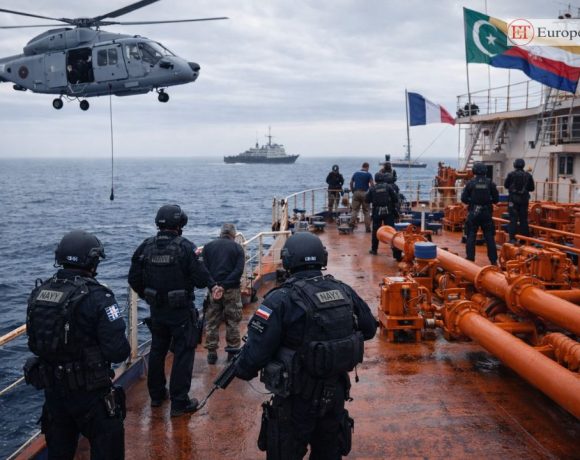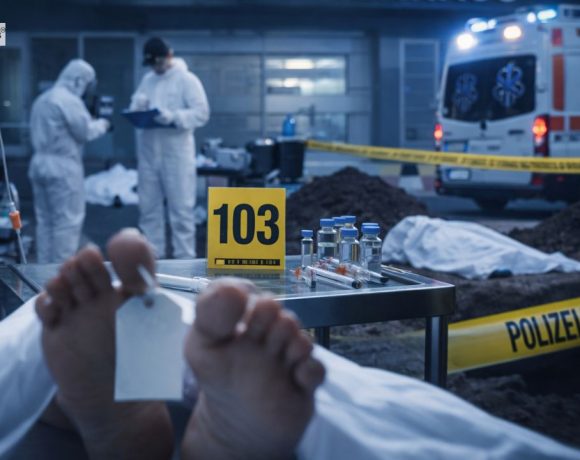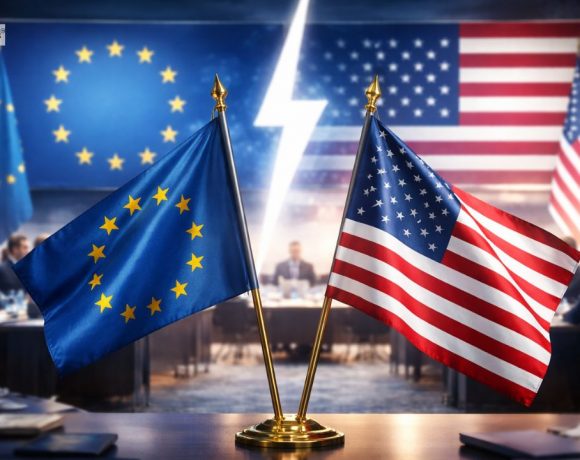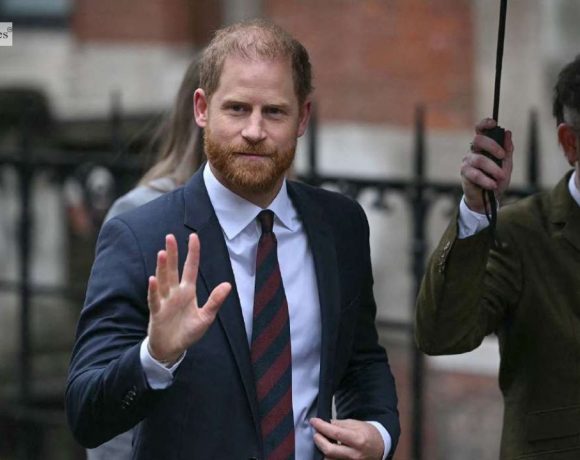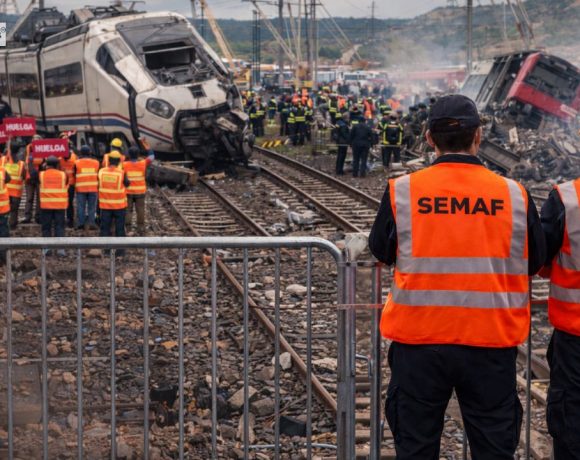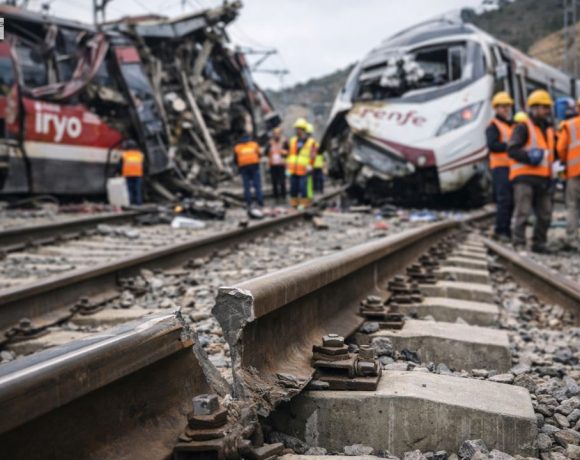
Spanish rail investigators said a fracture in the track likely occurred before a high-speed train derailed in southern Spain, leading to a fatal collision that killed 45 people. In a preliminary report released on Friday, the rail accident investigation body CIAF said available evidence suggests the rail break happened prior to the passage of the Iryo train and before the derailment itself.
The crash occurred on Sunday near Adamuz in the Cordoba province, when a derailed Iryo high-speed train collided with an oncoming Renfe train, marking one of Europe’s deadliest rail accidents in recent years. While the cause of the rail fracture has not yet been determined, investigators stressed that no possibilities have been ruled out and further analysis is required.
CIAF said it found distinctive damage on the wheels of the Iryo train consistent with striking a broken rail, with markings closely matching defects observed on the fractured track section. Similar wheel damage was also identified on other trains that passed through the same area before the accident, though investigators cautioned that the findings remain preliminary and must be confirmed through detailed technical studies.
Pic courtesy: google/ images are subject to copyright

